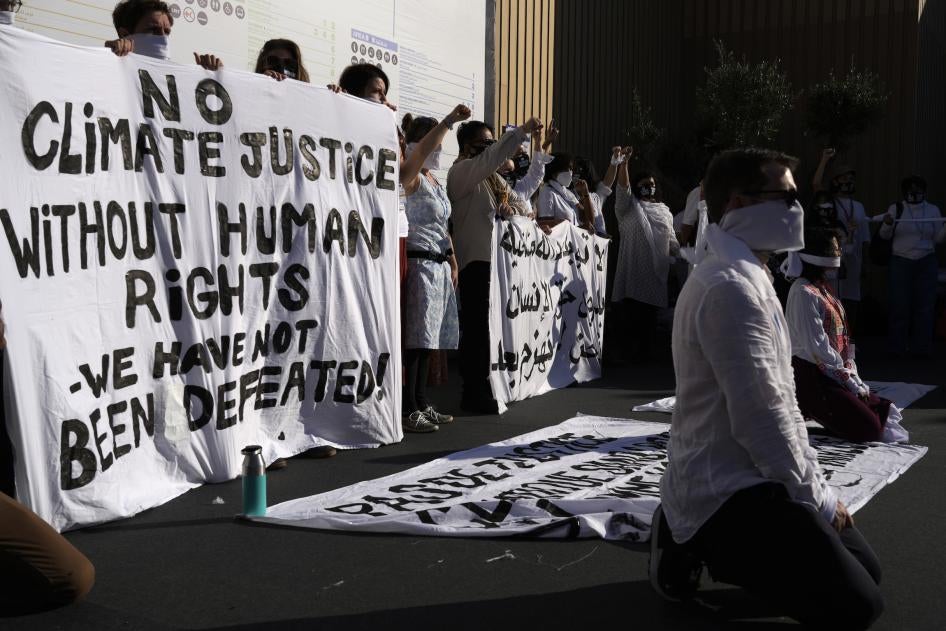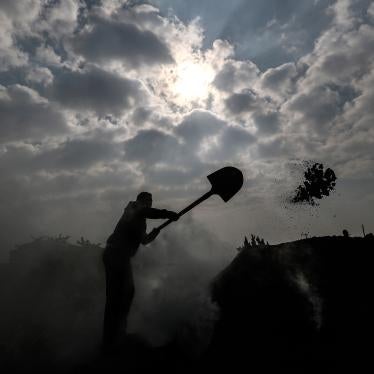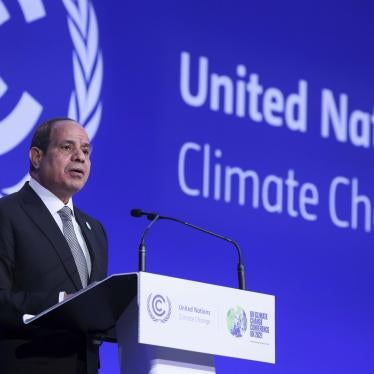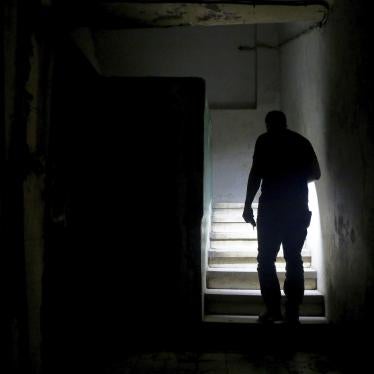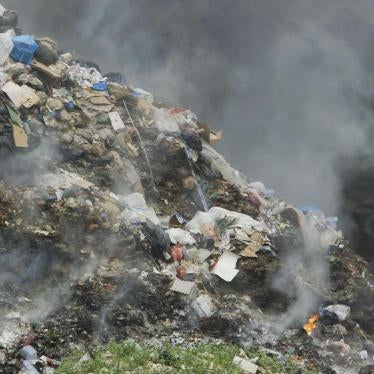Governments and civil society at the COP27 climate summit in Egypt are working around the clock to negotiate solutions to the climate crisis that threatens human rights around the world. UN human rights experts have urged governments to explicitly reference and apply human rights principles during these negotiations.
But the Egyptian government’s brutal crackdown on civil society and harassment of environmental activists has taken attention away from the need to build pressure to achieve ambitious climate action.
In the morning of November 10, climate activists from around the world gathered at the official COP27 venue to stand in solidarity with Alaa Abdel Fattah, an imprisoned Egyptian-British activist who escalated his hunger strike on November 6 by refusing to drink water and has been subjected to a medical intervention against his will. They have also urged government delegations at COP27 to speak up for his release.
Later in the day, 13 human rights groups, including Human Rights Watch, issued a statement denouncing the previous night’s denial of entry of an Italian human rights activist by Egyptian authorities. Giorgio Caracciolo works for the anti-torture advocacy group Dignity, and intended to attend events linked to COP27. He was denied entry and deported despite having a valid entry visa to Egypt and an accreditation for the COP27 Green Zone. The Egyptian authorities did not provide him with a reason for revoking his visa and denying him entry.
Beyond the immediate impact on Caracciolo, who has now been blocked from attending COP27 and addressing the human rights situation in Egypt, these tactics are creating an environment of fear for all activists speaking out on human rights at COP27.
They are also diverting resources. Instead of advocating for ambitious, rights-based climate action, many COP participants have redirected efforts toward defending their rights and showing solidarity with those unlawfully jailed by Egypt.
While activists at previous climate talks have faced similar problems, Egypt shows us once and for all that the debate over whether ambitious climate policies or protecting human rights should come first presents a false dichotomy. We won’t get the climate action we need without respect for human rights.

